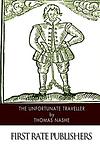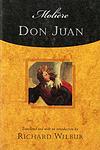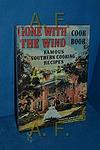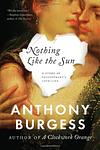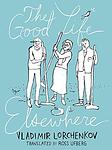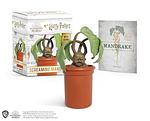The Greatest "Italy, Satire" Books of All Time
Click to learn how this list is calculated.
This list represents a comprehensive and trusted collection of the greatest books. Developed through a specialized algorithm, it brings together 300 'best of' book lists to form a definitive guide to the world's most acclaimed books. For those interested in how these books are chosen, additional details can be found on the rankings page.
Genres
The "Italy" category of books encompasses literature that is set in Italy, written by Italian authors, or explores the culture, history, and lifestyle of Italy. This category includes a wide range of genres, including fiction, non-fiction, memoirs, travelogues, and cookbooks. Books in this category often showcase the beauty and charm of Italy, its rich history and traditions, and the unique experiences of its people. Whether you're looking for a romantic novel set in Tuscany or a guidebook to the best gelato shops in Rome, the "Italy" category has something for everyone.
Satire is a genre of literature that uses humor, irony, and exaggeration to criticize and ridicule human vices, follies, and shortcomings. It is a form of social commentary that aims to expose the flaws and absurdities of society, politics, and culture. Satirical books often employ sarcasm, wit, and parody to challenge the status quo and provoke thought and reflection in readers. Satire can be both entertaining and thought-provoking, and it has been used throughout history as a powerful tool for social and political critique.
Countries
Date Range
Reading Statistics
Click the button below to see how many of these books you've read!
Download
If you're interested in downloading this list as a CSV file for use in a spreadsheet application, you can easily do so by clicking the button below. Please note that to ensure a manageable file size and faster download, the CSV will include details for only the first 500 books.
Download-
1. Catch-22 by Joseph Heller
The book is a satirical critique of military bureaucracy and the illogical nature of war, set during World War II. The story follows a U.S. Army Air Forces B-25 bombardier stationed in Italy, who is trying to maintain his sanity while fulfilling his service requirements so that he can go home. The novel explores the absurdity of war and military life through the experiences of the protagonist, who discovers that a bureaucratic rule, the "Catch-22", makes it impossible for him to escape his dangerous situation. The more he tries to avoid his military assignments, the deeper he gets sucked into the irrational world of military rule.
-
2. Tristram Shandy by Laurence Sterne
The novel is a humorous, rambling narrative that chronicles the life of Tristram Shandy. The story is filled with digressions, anecdotes, and eccentric characters, as Tristram often interrupts his own tale to interject commentary or to recount stories from his family's past. Despite the seemingly haphazard structure, the novel is a clever exploration of narrative form and a satirical critique of traditional biographies and novels.
-
3. Candide by Voltaire
"Candide" is a satirical novel that follows the adventures of a young man, Candide, who is living a sheltered life in an Edenic paradise and being indoctrinated with Leibnizian optimism by his mentor. When he is expelled from the paradise for kissing a baron's daughter, he embarks on a journey around the world, witnessing the horrors of war, natural disasters, and human cruelty. Throughout his journey, Candide maintains his optimistic philosophy, despite the constant hardships he faces, ultimately concluding that one must cultivate their own garden, a metaphor for taking control of one's own destiny.
-
4. Confessions of Zeno by Italo Svevo
"Confessions of Zeno" is a satirical, semi-autobiographical novel that follows the life of Zeno Cosini, a neurotic Italian businessman, as he tries to quit smoking. The book is presented as a diary, written at the suggestion of Zeno's psychoanalyst, and it details Zeno's thoughts on his health, his family, his business ventures, and his infatuation with a beautiful woman. Throughout the story, Zeno's attempts to quit smoking serve as a metaphor for his struggles with his personal weaknesses and his quest for self-understanding.
-
5. Earthly Powers by Anthony Burgess
"Earthly Powers" is a sprawling, complex novel that explores the intertwined lives of a homosexual British writer and an Italian-American Cardinal over the course of the 20th century. The narrative delves into themes of faith, homosexuality, and the nature of evil, while also providing a critique of modern society. It's a vivid tapestry of historical events, including two World Wars and Vatican II, providing a backdrop for the personal and spiritual struggles of its protagonists.
-
6. A Sentimental Journey Through France and Italy by Laurence Sterne
This novel follows the travels of a charming and sensitive man, who journeys through France and Italy, engaging in philosophical debates, falling in and out of love, and experiencing a variety of comedic misadventures. Along the way, he encounters a diverse array of characters, each with their own unique stories and perspectives. The novel is a humorous and satirical critique of travel literature of the time, with a focus on the human condition and the nature of sentimentalism.
-
7. The Unfortunate Traveller by Thomas Nashe
"The Unfortunate Traveller" is a picaresque novel that follows the adventures and misadventures of a young man named Jack Wilton, who goes through various escapades across Europe during the reign of Henry VIII. As a page to the Earl of Surrey, Jack encounters a variety of characters and experiences, including wars, imprisonment, and love affairs. The novel is notable for its vivid depiction of the social and political conditions of the time, as well as its pioneering use of the English language.
-
8. Satyricon by Petronius
The book in question is a satirical Roman work that provides a vivid, episodic portrayal of the decadent society during the reign of Nero. It follows the misadventures of the narrator and his companions as they navigate a world of excess, corruption, and hedonism. Through a series of events ranging from banquets to shipwrecks, the narrative offers a critique of the moral decay of Roman society, using humor, irony, and the perspective of characters from various social strata. The fragmented nature of the surviving text adds to its enigmatic and chaotic depiction of the period's social mores.
-
9. Don Juan by Molière
This comedic play explores the life of a libertine nobleman who is infamous for his seduction of women. The protagonist is a man who lives by his own rules, unburdened by morality or religion, and who takes pleasure in manipulating others for his own gain. His actions eventually lead to his downfall when he refuses to repent for his sins, resulting in a dramatic, supernatural punishment.
-
10. South Wind by Norman Douglas
Set on the fictional Mediterranean island of Nepenthe, the narrative unfolds as a diverse cast of eccentric expatriates and natives engage in philosophical discussions and indulge in the hedonistic pursuits characteristic of the island's culture. The central theme revolves around the clash between the island's permissive morals and the more conservative values of the outside world, with the plot meandering through various anecdotes and character studies rather than following a traditional linear progression. The novel is a satirical exploration of human nature, freedom, and the search for happiness, all set against the backdrop of a sun-drenched, idyllic landscape that seems to encourage both personal reflection and the shedding of societal constraints.
-
11. That Awful Mess On Via Merulana by Carlo Emilio Gadda
This novel is a complex and richly detailed exploration of a crime in 1920s Rome, where an investigation into a theft and a brutal murder in an apartment building on Via Merulana becomes a sprawling narrative that delves into the social, political, and cultural fabric of Italy. The detective in charge of the case navigates through a maze of clues, red herrings, and eccentric characters, revealing not just the underbelly of Roman society but also the inherent chaos and absurdity of life. The narrative is characterized by its linguistic inventiveness, with a mix of literary Italian, Roman dialect, and technical jargon, making it a challenging yet rewarding read that transcends the boundaries of the detective genre to offer a profound commentary on the human condition.
-
12. Nothing Like the Sun by Anthony Burgess
"Nothing Like the Sun" is a historical novel that brings to life the love story of William Shakespeare and the mysterious Dark Lady who inspired many of his sonnets. The narrative explores Shakespeare's life and times, his relationships, his creative process, and his struggles with fame and fortune. The book is known for its rich and imaginative language, reflecting the linguistic brilliance of the Bard himself.
-
13. Volpone by Ben Jonson
"Volpone" is a satirical comedy set in 17th century Venice, where the cunning protagonist, Volpone, and his servant, Mosca, swindle the city's wealthy elite by pretending Volpone is on his deathbed and in need of a worthy heir. This prompts a series of greedy contenders who offer extravagant gifts in hope of being named the heir. Despite their successful deceit, their scheme is eventually exposed, leading to their downfall. The story serves as a critique of greed and corruption, highlighting the destructive power of unchecked ambition.
-
14. The Vatican Cellars by Andre Gide
The novel unfolds as a satirical adventure, delving into the complexities of faith, deception, and the human quest for meaning. Set against the backdrop of early 20th-century Europe, it follows the journey of Lafcadio, a young man whose paths cross with an eclectic mix of characters, including anarchists, aristocrats, and religious figures, each embroiled in their own pursuits of ideology, power, and salvation. Central to the plot is a meticulously planned hoax involving the Pope, which spirals into a series of events that challenge the characters' beliefs and intentions. Through its intricate narrative and sharp critique of societal norms, the book explores themes of morality, authenticity, and the absurdity of human endeavors.
-
15. Satires by Horace
"Satires" is a collection of poetic essays that delve into the follies and vices of Roman society during the first century BCE. Through a series of witty, critical, and often self-deprecating poems, the author explores themes such as greed, corruption, and social ambition, while advocating for a life of moderation and philosophical contentment. Employing a conversational tone and a keen eye for the absurd, the work satirizes the behaviors of both the elite and the common people, offering a timeless reflection on human nature and the pursuit of happiness.
-
16. Unconditional Surrender by Evelyn Waugh
"Unconditional Surrender" is the third novel in a trilogy that satirically chronicles the adventures of its protagonist, a young British man, through the tumultuous years of World War II. In this final installment, the protagonist finds himself navigating the complexities of military bureaucracy, engaging in various escapades across Europe, and grappling with personal and ethical dilemmas. The narrative weaves together themes of honor, absurdity, and the search for meaning amidst the chaos of war, all while maintaining a sharp, ironic wit that critiques the societal and military structures of the time.
-
17. Memoirs Of A Gnostic Dwarf by David Madsen
This novel offers a vivid and provocative portrayal of the Vatican during the Renaissance, seen through the eyes of a dwarf who serves Pope Leo X. The narrative delves into the corruption, intrigue, and scandal that pervade the Holy See, presenting a stark contrast between the spiritual ideals of the Church and the worldly, often debauched behavior of its leaders. The dwarf, possessing a sharp intellect and a unique perspective, navigates this morally complex environment, exploring themes of faith, power, and the nature of truth. His journey is not only a physical one through the lavish and sometimes grotesque landscapes of the Vatican but also a spiritual and philosophical quest for understanding and redemption.
-
18. The Good Life Elsewhere by Vladimir Lorchenkov
"The Good Life Elsewhere" is a darkly humorous and satirical novel that follows a group of Moldovan villagers who embark on a chaotic journey to Italy in search of a better life. Through their misadventures, the author exposes the harsh realities of poverty, corruption, and the desperate measures people are willing to take in pursuit of a brighter future. With a blend of absurdity and poignant social commentary, the novel offers a compelling exploration of the human condition and the universal desire for a better life.
-
19. Accidental Death Of An Anarchist by Dario Fo
In this satirical farce, an eccentric and quick-witted man, referred to as the Maniac, infiltrates a police station where an anarchist railway worker's death is being investigated. The authorities claim the anarchist died by suicide, having jumped out of a window during an interrogation. However, the Maniac cleverly impersonates various officials, manipulates the policemen, and exposes the absurdities and contradictions in their stories, suggesting that the anarchist's death was not an accident but a cover-up of police brutality. The play uses sharp humor and slapstick to critique corruption and the misuse of power within the establishment, ultimately questioning the integrity of the police and the justice system.
-
20. The Servant Of Two Masters by Carlo Goldoni
The play is a classic Italian comedy that revolves around the clever and resourceful Truffaldino, who seeks to serve two different masters simultaneously in the hope of doubling his income. The ensuing plot is a whirlwind of mistaken identities, love triangles, and comedic confusions. As Truffaldino scrambles to keep his dual employment a secret, the characters are entangled in a series of humorous situations involving love-struck young lovers, a feisty soubrette, and a pair of stern fathers. The play culminates in a series of revelations and reconciliations that restore social order and conclude with festive celebrations.
-
21. Satires by Persius
The book is a collection of six satirical poems written in Latin, which delve into the moral and philosophical concerns of the author's time. Through sharp wit and a penetrating critique of contemporary Roman society, the author exposes the vices and follies of his peers, particularly targeting the corruption, greed, and hypocrisy that he perceives. The work reflects Stoic philosophical ideals and emphasizes the importance of virtue, self-awareness, and the pursuit of wisdom over material wealth and superficial success. Despite its serious themes, the book is known for its poetic artistry and the clever use of language to convey its biting commentary on the moral decay of society.
-
22. Satires by Juvenal
"Satires" is a collection of poetic essays from ancient Rome that offer a scathing critique of the social and political landscape of the time. The work delves into the corruption, decadence, and moral decay of Roman society, using biting wit and a satirical tone to expose the vices and follies of its citizens and leaders. The author employs a range of literary devices, from irony to hyperbole, to lambast the greed, hypocrisy, and depravity he perceives, while also reflecting on human nature and the challenges of living a virtuous life amidst widespread societal failings. The text is not only a commentary on the specific historical context but has also been interpreted as a timeless exploration of the human condition.
-
23. Epigrams by Martial
The book is a classic collection of Latin poetry, renowned for its wit, sharp observations, and often biting satirical content. Comprising numerous short, pithy poems, the work captures the essence of Roman society, its vices, virtues, and daily life, through the lens of the poet's keen eye. The poet employs a range of literary devices, from irony to hyperbole, to craft epigrams that are at once humorous, poignant, and reflective of the human condition, making the collection a timeless exploration of social mores and personal relationships in ancient Rome.
-
24. The Mandrake by Niccolo Machiavelli
"The Mandrake" is a satirical play that explores themes of corruption, deceit, and the manipulation of social norms. Set in Renaissance Italy, the story revolves around a young man who, desperate to win the affections of a beautiful but married woman, concocts a complex scheme involving a love potion derived from the mandrake root. With the help of a cunning rascal and a corrupt priest, the plan unfolds with a series of deceptions and moral compromises, ultimately questioning the true nature of virtue and vice in a society rife with hypocrisy. The play delves into the darker aspects of human behavior, using wit and humor to expose the lengths to which individuals will go to satisfy their desires.
-
25. The Skin by Curzio Malaparte
This book is a vivid and harrowing account of the liberation of Naples by the Allies during World War II, as seen through the eyes of the author, who serves as a liaison officer with the American forces. It delves into the moral and physical decay that war brings to a city and its inhabitants, exploring themes of survival, the price of liberation, and the complex relationship between conquerors and the conquered. Through a series of grotesque, often shocking episodes, the narrative portrays the desperation and degradation of a society stripped of dignity, where human skin becomes a metaphor for the erosion of humanity itself. The work is a powerful, if unsettling, examination of the human condition under the extreme pressures of war, betrayal, and occupation.
Reading Statistics
Click the button below to see how many of these books you've read!
Download
If you're interested in downloading this list as a CSV file for use in a spreadsheet application, you can easily do so by clicking the button below. Please note that to ensure a manageable file size and faster download, the CSV will include details for only the first 500 books.
Download





